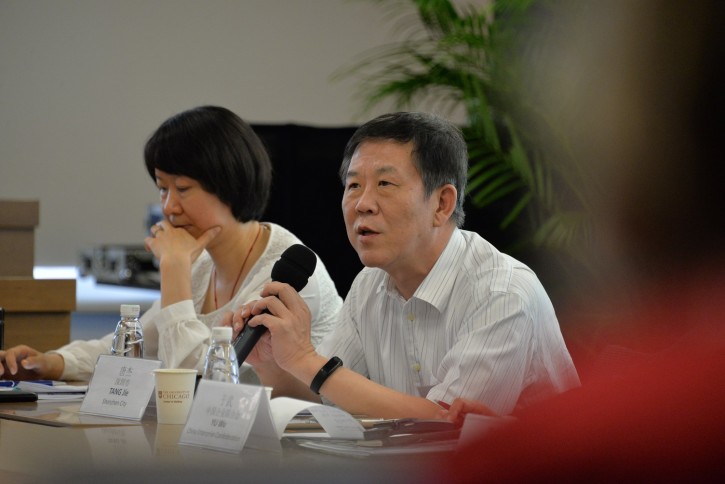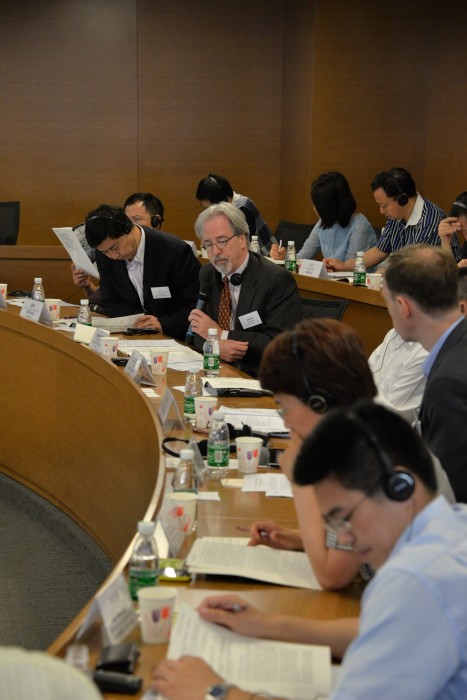
Under the theme of Stronger Markets, Cleaner Air, the Paulson Institute held its inaugural Paulson Dialogues – four roundtable discussions built around papers developed by the Institute and top experts that explore how policy can incentivize markets to support China’s transformation to a high-innovation, low-carbon economy. The dialogues were hosted at the University of Chicago Center in Beijing, with 74 participants from 51 organizations, including policymakers and influencers, as well as private and state-owned businesses.
“These dialogues bring together top experts from China and the United States to delve deeply into concrete and technical solutions for China’s air quality problems,” said Elle Carberry, managing director of the Institute’s Climate Change and Air Quality Program. “The combined expertise of the authors and the people participating in the dialogues will drive policy recommendations that support China’s efforts to reduce pollution while continuing to promote economic growth.”

The topics of dialogues were focused on power sector reform, electric power demand response, building energy disclosure and carbon emissions trading, and were co-authored with experts from the Regulatory Assistance Project (RAP), Natural Resources Defense Council (NRDC) and Environmental Defense Fund (EDF). The facilitated discussions centered on recommendations for maximizing the benefits of each area of policy, potential obstacles that could hinder their impact, and suggested next steps to implement some of the recommendations.
“The Paulson Institute believes economic growth is stronger and more sustainable when it is anchored by comprehensive environmental and climate policies,” said Kate Gordon, the Institute’s vice chair of Climate and Sustainable Cities. “And these dialogues aim to explore environmental and energy issues through the prism of what will also work economically.”
Feedback from the dialogues is being incorporated into the policy papers, which will then be released publicly later in the year in Chinese and English.



